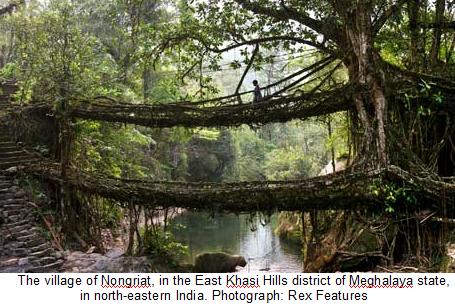Matthew Newsome reports that land and tribal rights in India might well be endangered by the government’s announcement that major infrastructure projects will be exempt from obtaining consent for forest clearance from some tribal communities living in the forest.
Environment minister Jayanthi Natarajan said “The ministry took a decision that, subject to [the] Forest Rights Act, there will not be requirement of consent of each of the gram sabhas through which such linear projects such as roads, canals, pipelines, transmission towers etc pass.”
Tribal and forest rights activists fear that the decision leaves village councils (gram sabhas) powerless to reject such developments. This appears to be in conflict with the country’s 2006 Forest Rights Act:
- which grants legal recognition to the rights of traditional forest dwelling communities, partially correcting the injustice caused by the forest laws;
- and involves communities and the public about forest and wildlife conservation to some extent.
Dr Swati Shresth, from the Ashoka Trust for Research in Ecology and the Environment says: “This is serious breach of trust and a huge step back in ensuring the dignity and survival of traditional forest-dwelling people across the country. Forests are going to be cleared to make way for a particular kind of economic development; it will adversely impact communities and the environment.”
In 2009, the ministry of forests and environment (MoFE) made the consent of affected forest communities mandatory for all projects that would destroy forests. The move was in response to the attempt by British mining company Vedanta to clear swathes of forest in Orissa state belonging to the Dongria tribe. The announcement appears to revoke the 2009 order.
Activists say this move will allow industry to build roads or canal systems for mining projects to transport extracted minerals to the refinery. “The only objective is mining access. Mining companies need six road highways and optical fibre installations. Tribal communities don’t want this, and don’t want their precious forests replaced by these. The only beneficiaries of this amendment are the mining companies. This is about GDP, not about the rights of India’s tribal communities,” said Sanjay Basu Mullick from the All India Forum of Forest Movements.
Dr Shresth sees this move as “part of a larger endeavour to restore investor confidence by a government facing general assembly elections in 2014. Various environmental protection rules have been seen to be responsible for a slump in the growth rate.”
